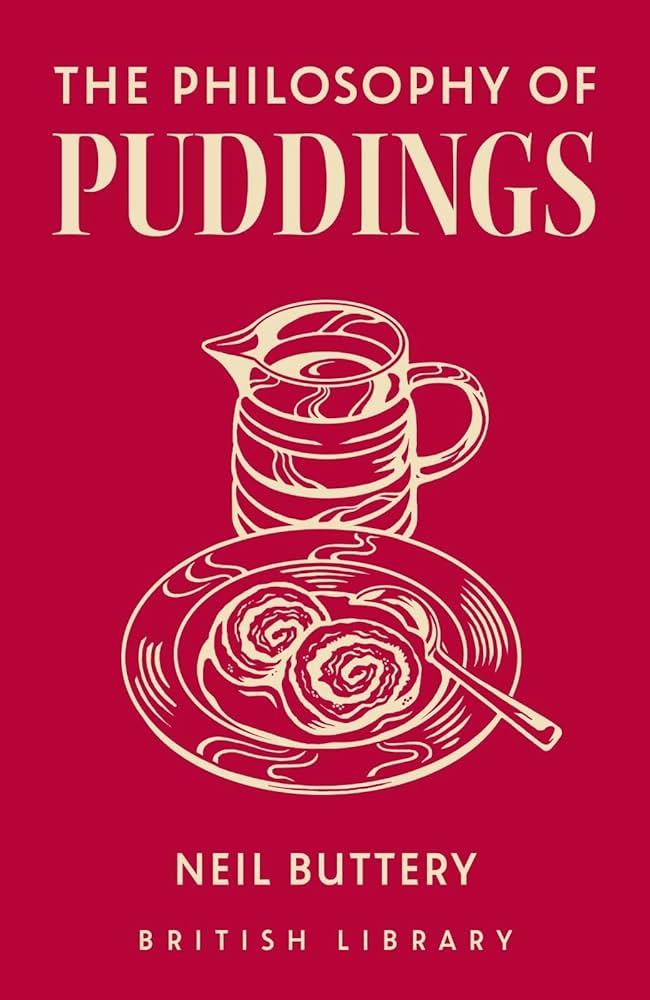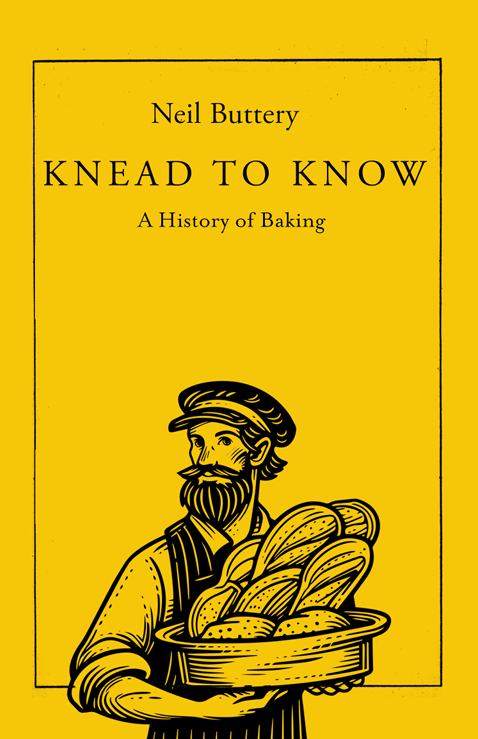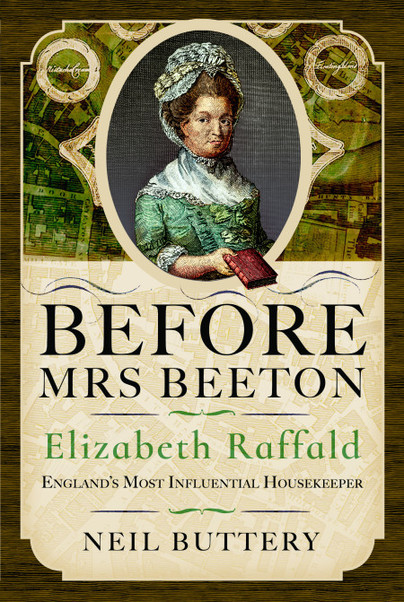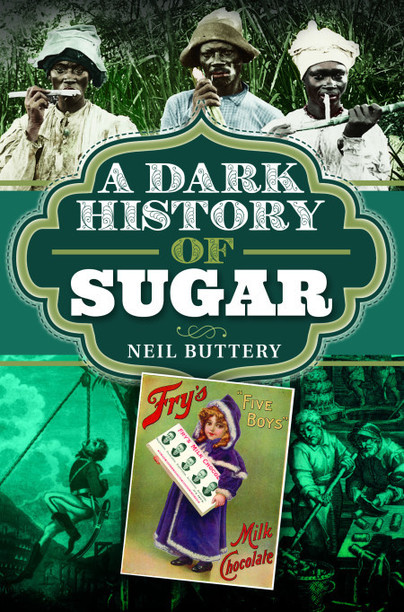If you want to order signed copies of my books, please drop me an email at neil@britishfoodhistory.com. Postage and packing to the UK varies depending upon the books ordered, but it will be £3.50 at the most. Outside of the UK it will (sadly) be the going rate for your country.




The Philosophy of Puddings (2024, British Library Publishing): £10.00
Just what is a pudding? We all have our favourites, whether it is a school-dinner jam roly-poly with custard, or a Yorkshire pud with onion gravy, a Burns’ Night haggis or the Christmas plum pudding. The humble pudding started out as a savoury meal boiled in either animal intestine or in a cloth. With the advent of pudding bowls and moulds the pudding assumed a myriad of identities. Neil Buttery traces the long history of pudding and its importance in British culture and language. He has tried and tested many recipes from across the centuries in his ‘Pud Club’ and shares his extensive knowledge and expertise.
Knead to Know (2024, Icon Books): £12.99
In Knead to Know: A History of Baking, food historian and chef Neil Buttery takes the listener on a journey exploring the creation, evolution and cultural importance of some of our most beloved baked foods, whether they be fit for a monarch’s table, or served from the bakestone of a lowly farm labourer. This book charts innovations, happy accidents and some of the most downright bizarre baked foods ever created.
Everything has a history, but food history is special because it tells us so much about our culture and society, from the role of bread in the birth of human civilisation to the invention of the wedding cake, the creation of the whisk, or the purpose of the fish heads in a star-gazy pie. Food history encompasses it all.
When we think of the evolution of something, we think every step is an improvement, an incremental elevation toward some peak of perfection. This is not always the case. Sometimes things have to become simpler, knowledge is lost and skills are forgotten. As a baker of historical foods, Neil Buttery demonstrates that forgotten recipes and traditional techniques are often worth trying out (and mentions a few that should perhaps be left in the past).
Before Mrs Beeton: Elizabeth Raffald, England’s Most Influential Housekeeper (2023, Pen & Sword History): £20. Winner Guild Food Writer’s Award 2024, Best Food Book category.
The great Elizabeth Raffald used to be a household name, and her list of accomplishments would make even the highest of achievers feel suddenly impotent. After becoming housekeeper at Arley Hall in Cheshire at age twenty-five, she married and moved to Manchester, transforming the Manchester food scene and business community, writing the first A to Z directory and creating the first domestic servants registry office, the first temping agency if you will. Not only that, she set up a cookery school and ran a high class tavern attracting both gentry and nobility. She reputedly gave birth to sixteen daughters, wrote book on midwifery and was an effective exorciser of evil spirits. These achievements gave her notoriety and standing in Manchester, but it all pales in comparison to her biggest achievement; her cookery book The Experienced English Housekeeper. Published in 1769, it ran to over twenty editions and brought her fame and fortune. But then disaster; her fortune lost, spent by her alcoholic husband. Bankrupted twice, she spent her final years in a pokey coffeehouse in a seedy part of town. Her book, however, lived on. Influential and often imitated (but never bettered), it became the must-have volume for any kitchen, and it helped form our notion of traditional British food as we think of it today. To tell Elizabeth’s tumultuous rise and fall story, historian Neil Buttery doesn’t just delve into the history of food in the eighteenth century, he has to look at trade and empire, domestic service, the agricultural revolution, women’s rights, publishing and copyright law, gentlemen’s clubs and societies, the horse races, the defeminization of midwifery, and the paranormal, to name but a few. Elizabeth Raffald should be revered, not unknown. How can this be? Perhaps we should ask Mrs Beeton…
A Dark History of Sugar (2022, Pen & Sword History): £16.00 (20% off). Winner Guild of Food Writer’s Awards 2023, Best First Book category.
A Dark History of Sugar delves into our evolutionary history to explain why sugar is so loved, yet is the root cause of so many bad things. Europe’s colonial past and Britain’s Empire were founded and fuelled on sugar, as was the United States, the greatest superpower on the planet – and they all relied upon slave labour to catalyse it. A Dark History of Sugar focusses upon the role of the slave trade in sugar production and looks beyond it to how the exploitation of the workers didn’t end with emancipation. It reveals the sickly truth behind the detrimental impact of sugar’s meteoric popularity on the environment and our health. Advertising companies peddle their sugar-laden wares to children with fun cartoon characters, but the reality is not so sweet. A Dark History of Sugar delves into our long relationship with this sweetest and most ancient of commodities. The book examines the impact of the sugar trade on the economies of Britain and the rest of the world, as well as its influence on health and cultural and social trends over the centuries. Renowned food historian Neil Buttery takes a look at some of the lesser-known elements of the history of sugar, delving into the murky and mysterious aspects of its phenomenal rise from the first cultivation of the sugar cane plant in Papua New Guinean in 8,000 BCE to becoming an integral part of the cultural fabric of life in Britain and the rest of the West – at whatever cost. The dark history of sugar is one of exploitation: of slaves and workers, of the environment and of the consumer. Wars have been fought over it and it is responsible for what is potentially to be the planet’s greatest health crisis. And yet we cannot get enough of it, for sugar and sweetness has cast its spell over us all; it is comfort and we reminisce fondly about the sweets, cakes, puddings and fizzy drinks of our childhoods with dewy-eyed nostalgia. To be sweet means to be good, to be innocent; in this book Neil Buttery argues that sugar is nothing of the sort. Indeed, it is guilty of some of the worst crimes against humanity and the planet.
